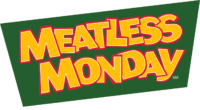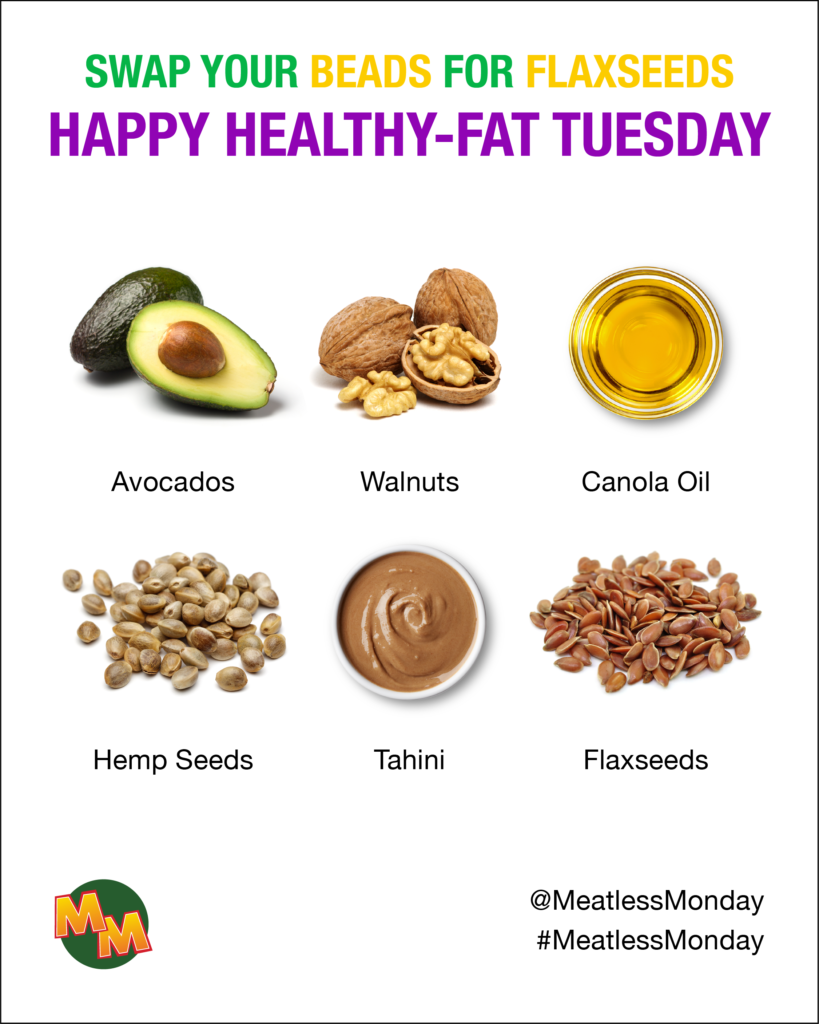Celebrate Healthy-Fat Tuesday by Adding These 8 Plant-Based Ingredients to Your Meatless Monday Menu
This week, in honor of Mardi Gras, we’re celebrating Healthy-Fat Tuesday with a list of foods and ingredients rich in healthy fats.
Fats are complex and often misunderstood nutrients. Despite their often-misleading name, fats play an important role in healthy balanced diets and their consumption doesn’t necessarily lead to weight gain.
Saturated and unsaturated are the two major categories of dietary fats. Saturated fats are typically solid at room temperature and are predominately found in red and processed meats, whole milk and whole-milk dairy products, cheese, and baked goods. Although fine in moderation, the USDA Dietary Guidelines recommend limiting saturated fat to under 10 percent of your daily caloric intake. Unsaturated fats come from vegetables, nuts, seeds, and fish, and are labeled as “good” fats because their consumption is associated with lower rates of cardiovascular disease and all-cause mortality.
Try incorporating these foods and ingredients into your weekly Meatless Monday menu.
Avocado
With 77 percent of calories from fat, this pretty green fruit is actually one of the fattiest plant foods on Earth. Avocado is rich in oleic acid, a monounsaturated fatty acid associated with reduced inflammation. Easily add some to your diet with this recipe for Garlicky White Bean Avocado Toast.
Canola Oil
Derived from the rapeseed, canola oil has a similar nutritional profile to olive oil but contains a slightly lower percentage of saturated fat. It’s one of the most versatile cooking oils, which makes it excellent for frying and medium-heat cooking. It can also be used as the base for salad dressings, sauces, and marinades.
Flaxseeds
Flaxseeds are high in fiber and protein, but they’re also one of the richest sources of plant-based omega-3 fatty acids — polyunsaturated fats that are associated with benefits for heart health.
Hemp Seeds
While technically categorized as a “nut,” the hemp seed is nutrient-dense and a terrific source of both omega-6 and omega-3 essential fatty acids. Try adding a scoop to smoothies, muffins, or chia pudding.
Olive Oil
Although it contains small levels of saturated fat, olive oil is predominately composed of a monounsaturated fat called oleic acid. Studies link oleic acid to lower levels of inflammation, but the health benefits of olive oil range from a reduced risk of stroke and heart disease to weight loss.
Peanuts
An easy and accessible snack, a little pouch of peanuts can instantly cure your hunger pangs. Peanuts are so satiating because of their high-fat content. Classified as an oilseed rather than a nut, the peanut is nearly 50 percent fat, most of which is mono- and polyunsaturated. Try adding some to this hot and spicy Peanut Noodle.
Tahini
Made from pulverized sesame seeds, tahini — along with chickpeas — is one of the main ingredients in hummus. Sesame seeds are made up of 80 percent mono- and polyunsaturated fats, which research shows can help lower cholesterol levels. Tahini makes the perfect dressing for roasted vegetables or this Curry Carrot Salad.
Walnuts
Like most nuts, walnuts contain “good” fats, but they are also an important vegetarian source of omega-3 fatty acids. Research shows that omega-3 plays a critical role in reducing oxidative stress in the brain and can even help with the development and function of the central nervous system. Eat them roasted or blend them up with lentils to make the perfect plant-based meatball.
Click here for more Meatless Monday recipes. When posting pictures of recipes to your social media network, tag @MeatlessMonday use #MeatlessMonday to show the plant-based community your creation.

